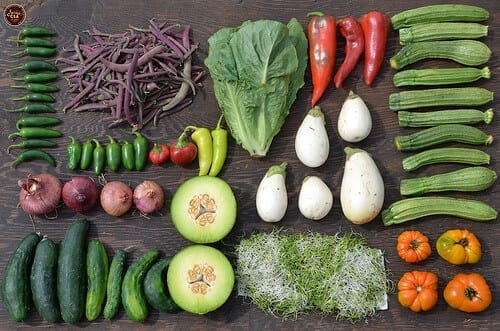Why is it that Eastern civilizations appear to avoid the pitfalls of diet related diseases like constipation, colon cancer, and obesity? Could it be as simple as their observance of traditional diets and eating styles, handed down from generations of whole-food eaters? The foods consumed by these “healthier” cultures are not only as natural as possible, but they also align with an area’s seasonal produce and the body’s needs.
Whole foods are recommended for almost all diet patterns. The widely held belief stipulates that foods should not be broken down into nutrients but instead consumed in their natural forms, sans processing. This coincides with the notion that nature provides the best nutrition and the most balanced diet, obviating the need for vitamin and mineral supplements so popular in our culture.
A whole-foods diet helps ensure that your entire body gets the required nutrition it needs. That’s because whole foods carry out the major functions of a good diet, which includes absorption, assimilation, and elimination, everything a healthy body needs. In contrast, synthetic, processed, and refined foods may interfere with your body’s normal functions. In time, unnatural foods may leave you vulnerable to disease.
Understanding Whole Foods
So what are whole foods? Simply put, they are the natural, raw produce of nature, foodstuffs that have not been chemically or genetically tampered with. Foods like vegetables grown without chemical fertilizers or pesticides, cereals that are unpolished or unprocessed, in particular, foods without additives, coloring, or other artificial ingredients. You should avoid foods containing partially hydrogenated oils, trans fatty acids, sugar, high fructose corn syrup, white flour, refined carbohydrates, and other artificially modified ingredients. Strive for whole foods that are seasonal, and not frozen or chemically preserved. Make a habit of eating fresh vegetables like broccoli, cauliflower and brussels sprouts; go for green leafy vegetables like spinach, lettuce and kale; and don’t forget roots like beets, carrots, and parsnips. Many Americans rarely eat these vegetables. Others may encounter them only in TV dinners prepared months before in food factories thousands of miles away.
By Alex A. Kecskes
Sign up here for an exclusive download: Self-Care Tips for Nurses!
If you’re passionate about helping others maintain a healthier, more balanced lifestyle, learn more about becoming a student in one of PCOM’s holistic nursing, acupuncture or massage therapy programs.
Aligning Diet with Nature’s Seasons and Body’s Needs
Keep in mind that Eastern nutrition is like Chinese herbal medicine. Foods are perceived as natural healing substances that include grains, legumes, vegetables, fruits, nuts and seeds, algae and minerals your body needs to stay healthy. The emphasis is on whole organic food in its simplest form. In China, food grade herbs are highly respected, producing the most lasting results with the most gentle of action. They nourish areas of your body and bring it into balance.
Here’s one from their site:
Citrus Sole Packets–Serves 4
- 1 tblspn 365 Everyday ValueT Extra Virgin Olive Oil
- 2 cups chopped Swiss chard or kale
- 1 cup julienned Whole FieldsT Organic Petite Carrots
- 1 celery stalk, thinly sliced
- 4 tblspns finely chopped scallions, divided
- Juice and zest of one orange
- Sea salt, to taste
- Ground pepper, to taste
- 2 (12-oz) pkgs Whole CatchT Sole Fillets, thawed & patted dry
- 8-12 thin slices of lemon
Preheat oven to 450ºF. Heat oil in a large sauté pan and cook chard, carrots, celery and half of scallions until soft, about 8 minutes. Let cool slightly, and then toss with orange juice and zest. Season to taste with salt and pepper and set aside. Cut a 2-foot length of parchment paper (or foil) and place on a sheet pan. Spoon about 2 tablespoons veggie mixture onto each fish fillet. Gently roll each fillet and secure with toothpicks. Arrange fillets on one half of the paper. Sprinkle with pepper, top with lemon slices and any remaining sauce. Fold paper in half and crimp edges until well sealed. Bake 12-18 minutes until fish is opaque. Remove rolls and sprinkle with remaining scallions. Remove toothpicks. Serve.
Sign up here for an exclusive download: Self-Care Tips for Nurses!
If you’re passionate about helping others maintain a healthier, more balanced lifestyle, learn more about becoming a student in one of PCOM’s holistic nursing, acupuncture or massage therapy programs.
Featured Posts:
